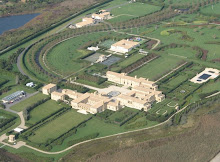Desert Mountain Club Wins Suits Against Desert Mountain Members
Maricopa County Superior Court ruled on November 21, 2016 that Desert Mountain Club members Clark and Graham had no right to simply resign from the club. The court granted a summary judgment against the defendants, agreeing that Desert Mountain Club members are locked into paying dues and assessments until they comply with resignation procedures set by the club’s board of directors. Points made to support the court’s ruling:
Changes in club bylaws have revoked commitments made by the club when recruiting new members. For example, pledges to split the proceeds of sale of a membership 80-20 are now void. So too is the commitment to allow members to quit at any time. This is true even though section 4.6.3 of the 2010, 2012 and 2013 club bylaws gives resigning members the refund rights granted in their original memberships agreement.
What a member has to pay to leave the club is entirely up to the board. ARS § 10-3610 guarantees all members of a non-profit corporation the same rights and obligations. It’s considered equal treatment of members if the board charges one member $65,000 to resign and waives any resignation fee from another member.
Membership in the Desert Mountain Club is like owning a car. Owners have to transfer title to get rid of a car. Getting rid of a Desert Mountain membership is the same. Once enrolled, members have an obligation to support the club financially regardless of their personal situation. This is true even though membership in the club is not a property right. The Desert Mountain Club is a non-profit corporation. Non-profits have members, not owners. Desert Mountain “equity members” have no right to any share of club assets, even after sale or dissolution of the club.
Desert Mountain is not Hotel California. Members are not trapped like guests in the Eagles' hit tune: "You can check-out anytime you like, but you can never leave.” The court in the Callawassie case ruled that a golf club can not trap members into what could be a perpetual obligation to pay dues. Reasoning in the Callawassie case doesn’t apply because the Desert Mountain bylaws are clear that members must continue paying dues even after resignation.
There are five ways to leave the Desert Mountain Club. Sale with a member’s property, sale at the market price, legacy transfer, negotiated transfer and death. The first four assume a willing recruit can be found. If not found, or if the board gives priority to selling from their ample supply of un-issued memberships, dues may be payable for life.
Judgment against Clark and Graham was entered on December 22, 2016.
Notice of Appeal was filed on January 10, 2017, Case number 1 CA-CV 17-0100
DMC v. Clark Appellate Decision April 12, 2018

























































